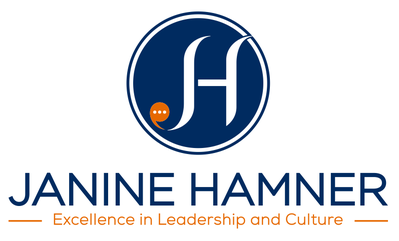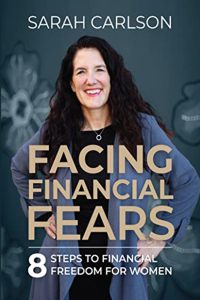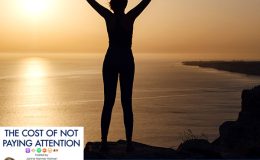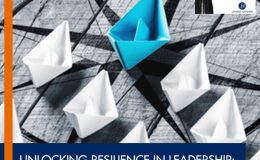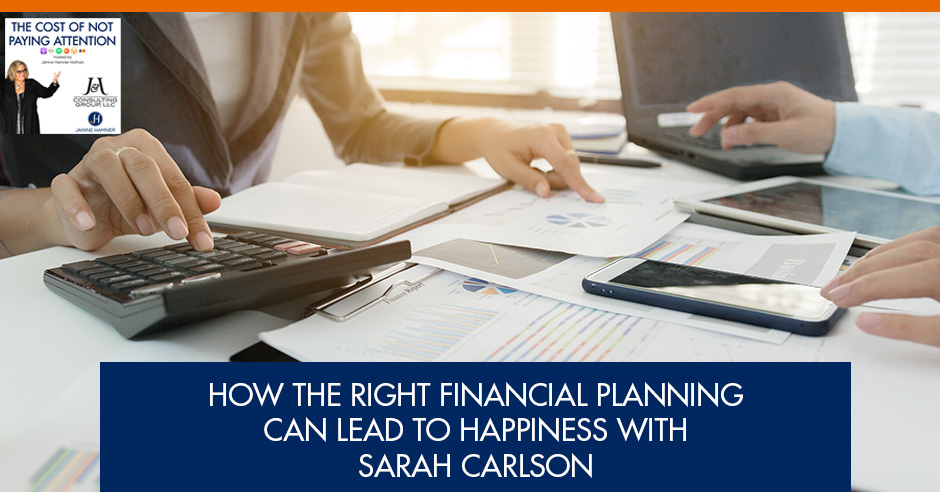
Many women do not pay that much attention to their money as they were raised thinking it is a topic reserved for men. With little to no knowledge about financial planning, they often find themselves struggling to build wealth or too deep into debt. Thought leader and financial planner Sarah Carlson helps women get out of this miserable situation by teaching them how to create productive relationships with money. Joining Janine Hamner Holman, she shares practical strategies for fully understanding your cash flow, assets, and liabilities to take control of your finances. Sarah also discusses how to pay off huge credit card debts by sacrificing some expenses you don’t really need and live a genuinely happy life.
GUEST: Sarah Carlson | LinkedIn | Visit their Website: https://www.lovemoneyjournal.com/
HOST: Janine Hamner Holman | Janine@JandJCG.com | LinkedIn, Facebook, Instagram, and Twitter |
—
Listen to the podcast here
How The Right Financial Planning Can Lead to Happiness with Sarah Carlson
What am I paying attention to in this episode? All the junk that we have about money. Many years ago, when I was a young whipper snapper, one of my after-college jobs was helping to train folks to raise money for nonprofit organizations. In the nonprofit organization that I was working for at the time, almost all of the money came from individuals. We would go to people’s homes and ask them for money. If you had given $50 in the mail, statistically, you could give 10 or 20 times that much if properly motivated. We would start by asking people for $2,500.
I was 25 and I would be training these young folks, mostly women, on how to go into people’s homes and ask them for $2,500. We did a lot of work in the beginning, working on sorting out all of the fear and crap that we have about money. If I go into somebody’s house and ask them for a lot of money, they are going to be offended and mad at me. They are going to take out a gun. These were actual responses that people had when we were brainstorming what is going to happen when you ask people for money. All of this negative stuff. That is based on our relationship with money.
When we went in and asked people for a lot of money, people were usually flattered. You thought that they could give this much money, whether they could or they couldn’t. I am working on a project of getting a handle on my finances because I own a business and I have a husband, an elderly dog, and a cat. Each of those come with expenses.
I’m working on figuring out exactly the costs of the business. What are the costs that I have control over? What are the static costs? What are the optional costs? What are the things that I’m doing that I might or might not decide to keep doing both in my business and my home life? On that note, I would like to introduce my guest for this episode.
Sarah Carlson is a thought leader, writer and financial planner. She helps people get a handle on their money and to work towards the goal of living their very best lives. Although many people think money can’t buy happiness, Sarah knows from experience that it can certainly help. My mom says all the time, “Money is not going to fix it but it could certainly make the situation better.” The other side of the coin is that with money and wealth often comes anxiety, especially for those people who don’t know the ins and outs of financial planning, investments and money management. The reality is money does not solve problems but good advice does.
Welcome to the show, Sarah.
Janine, thank you so much for having me.
You are more than welcome. I’m so excited to have this conversation with you.
I loved your intro and unpacking it. As women, many times, we are fearful of talking about money. What a neat experience for you to be able to, early in your career, be put in a situation where you could push your boundary for that. I’m always surprised how, especially women, are fearful about talking about money. Many times, they are willing to share themselves in other ways. Even in a relationship, they are more willing to share their bodies and have sex than talk about their income and how much they have in savings or debt. As a society, we tend to create taboos around something that shouldn’t be a taboo.
We have so much shame, blame and mischief created around money. I remember when I was doing those trainings, something happened almost every time. I worked for this organization and I led their fundraising programs for about five years and I did a new training probably every two months.
Almost every time, someone would say, “Money is the root of all evil.” My grandpa was a minister and the line comes from the Bible but that’s not the line. That’s the part that we remember. The important part of the line is the love of money is the root of all evil. We’ve dropped the first two words that it’s the coveting of money. It’s the things that we will do to get money and void out who we are as people. It’s the way that money can override our values and sense of ourselves. It’s the love of money that’s the root of all evil.
Money is not the root of all evil. One of my friends often says, “Money is energy that flows in and flows out.” If we have debt, we think we are bad. If we do things and then look back on them, we think, “I probably shouldn’t have done that way.” We feel guilty or shameful about it. We’ve got all this nonsense about money that gets in the way of us having healthy, productive relationships with money.
That is why I wrote the book Facing Financial Fears: 8 Steps to Financial Freedom for Women. The fear gets mapped in childhood, things you’re told, whether it’s in church or your parents telling you. Many women, in particular, were raised to budget and be mindful of their pennies, whereas little boys have been encouraged to take more risk, invest and grow it.
Money doesn’t buy happiness but it certainly can help you choose how you spend your time, where you spend your time, whom you spend it with and for how long. Don’t all of us want to have some control over our lives? There are a few things that you can control in life and I firmly believe that you can control your money, provided you have some systems and steps you can take for financial independence.
You can control things that will help you live a happier life. Everyone’s final destination or lifestyle is slightly different. It sure is a lot less stressful knowing you have the basic expenses taken care of, that you can take resources and spend money on going to see your parents and taking that vacation. There’s another thing I have seen in my practice because I have been in the financial industry for my entire career and have had the privilege of helping many amazing people.
I have been doing it long enough that I have seen how good money strategies and relationships with money can transform and lift people in their journey. Helping people get to the right spot is to have some systems in place that can help them take that first step. As women, many times, we think we’re going to have more time. We are willing to take care of our children, dogs, spouses, clients and bosses. We always think we’re going to have more time, energy and resources to take care of our needs.
Part of what I like to advocate is to help people take care of themselves and make sure they prioritize themselves. The journey from being fearful about money to being joyful and loving about money is a series of curious steps. It doesn’t take a big action but it does take some action to make a step towards getting more control of your finances.
I have met plenty of incredibly successful people, many times women and entrepreneurs. They don’t look at their statements. Not just investment statements but their credit card statements. It’s almost like being in a state of denial. They will make time to deal with that later on. A lot of times people who are on this “hamster wheel” are working hard, working in their business and making good money but don’t have anything to show for it. Part of it is a matter of post and planning, helping them develop some systems.
We’re looking at those expenses. Take your Visa credit card, for example. You’re not liable for any wrong charges but if you don’t review those statements, how are you going to know that you are a victim of fraud or maybe a vendor charged you more than they should have? That is when having some basic systems where you can post and plan for is essentional. A lot of our clients will check weekly. They look at their statements and do an audit. Being more proactive can help your savings.

Financial Planning: Always take a look at your financial statements and make an audit. If you want to make it easier and be a lot more proactive, hand it over to a bookkeeper
Let’s get into it a little bit. If folks are reading this and thinking, “That’s me. I don’t do such a good job at looking at my statements or making a financial plan for myself.” My dad and his sister are very different people. The two of them could not be more different from each other. Their political values are opposed. Everything about how they approach life is different.
One of the ways that played out is that my aunt, whom I adored and who passed away from COVID, loved stuff. She had a beautiful home that she had built. She and her husband designed it and built it right on one of the many lakes in Georgia. It’s a big showy house, full of lots of stuff. She and her husband and each of their children drove enormous SUVs.
My dad, on the other hand, doesn’t value stuff. My parents have a perfectly nice home. They have one car between the two of them. It’s a Honda. It’s fine. It’s several years old. What they value are experiences. As a family, we took all kinds of trips and had wonderful meals. They valued that. Plus, they value charitable contributions. That is something that they have passed down to me. It’s an important part of my value system and is why I worked for nonprofits for so long. Still, an important part of how I spend my money is through charitable giving.
I don’t have a lot of stuff. I’m wearing this beautiful necklace and it costs me $20. I am planning a vacation with my husband, not through COVID but in non-COVID years, we try and get away at least twice a year because that’s part of how I like to spend money. I also think that is interesting. Part of what I love about what you’re up to is helping people figure out how their values get expressed through the way that they spend their money.
Everyone is different. Some people get a lot of value out of buying jewelry. Others would rather spend the $5,000 to buy diamond earrings and go to Europe instead. People are so different and it’s important that people recognize the basics of what they have to have and what they want to have. There are a lot of people that live in debt. They are constantly rolling one debt to another without understanding the impact. They treat their banker with more respect than they treat themselves.
Credit card companies, what do they pay you on your savings? Financial institutions will pay you maybe one percent, even with inflation, as high as it is. Yet, if you have a credit card with them and you carry a balance, many times, those same banks will charge you 30% for the privilege of owing them money. Have people be proactive on it because, with the right overall plan, the ideal would be that you pay for those excursions before you go. You pay for the plane ticket, accommodations, or the earrings before you wear them. A lot of people get caught up. Before you know it, they are wanting to back off but they can’t back off because they owe so much.
There are basic steps that people can take. The first thing is to get real and understand where you are. That’s part of the unveiling. The market is volatile and we had a huge decline. People are afraid to look at their statements. For some reason, if suddenly the trip you wanted to take was on sale, you might decide to buck up, go ahead, buy the tickets and invest in them for your next adventure. As investors, we don’t look at that with our investments. When the stock market is down, we don’t look at it like, “I can get what I need. It’s half off. I can buy more with my contribution.” We don’t tend to make that connection yet.
Real wealth is made during recessions and depressions. It’s not made when everyone’s real estate prices and 401(k) are brewing up. It’s made during a time like 2022 because what happens when inflation is high are people are having to make choices. People that abuse debt and take out loans sometimes have to sell their homes or sell a particular investment lower than they want to.
Real wealth is made during recessions and depressions. It is not made when everyone's real estate prices and 401ks are brewing up Share on XThe system clears out because they have to make good on that debt, whereas people who have a healthy relationship with money and don’t abuse debt are still able to add those investments to their retirement accounts. The people who have an emergency fund and don’t abuse debt get way ahead in times when adversity hits.
Another thing people don’t realize is when the market is choppy and there is fear in the market, it lends itself to some great planning opportunities within your portfolio. For example, with the market being turbulent, it is a great time to revisit your asset allocation. Certain asset classes that would be normally safe, like bonds in a rising rate environment, will get hurt as the rates go up, whereas to rebalance and look to move around your money in your retirement account is a huge opportunity with the market pullback.
Have some systems in place. Have the courage to step forward, take a look at it, and work with a professional. You have someone with whom you work who has been influential in your personal financial life. A professional can give you a different perspective. They also are students of the industry where they understand history. One of the things about this recession is I don’t think it’s any more special than all the other recessions. I have been through 50 of these in my career. It’s not so special. Statistically, it’s most likely going to respond and rebound similarly to all the other ones.
We always get caught up in the drama of it. The drama can help us lose focus of the plan but having a plan and some systematic steps are so important. In my book, I map out eight steps and systematic ways for women to take control, demystify, and make it actionable. It doesn’t take a big step to make a profound difference in your financial journey but it does require action.
It doesn't take a big step to make a profound difference in your financial journey, but it certainly requires action Share on XIf someone who is reading this hasn’t been paying much attention to their money and is thinking, “Maybe it’s time for me to get a little more serious about this.” How could they get started? What would be some first things for them to do?
It would be important to understand the here and now. There are two things. Understand your cashflow. What income do you have coming in? Get an understanding of where you are choosing to spend that money. Certain expenses you need to have like gas in your car, turning on the lights, food, probably insurance, having a well understanding of those.
Have an understanding of the discretionary. You know what you want to do and the trips you want to take. If you know what you need, also reflect on what has been your pattern of behavior. That is where looking at those statements and where most credit card companies will even summarize your expenses for you. You can break it down as to where you’re spending things but have an understanding of your cashflow.
The other thing to look at is your assets and liabilities. If you have liabilities and owe money, be clear on how much you owe and what are the terms that you owe. Credit card debt tends to be the most expensive debt. That is usually the debt that’s worth prioritizing first. The assets and liabilities, getting real about what you owe and the terms of it. I like putting people going through an exercise where we calculate how much they are paying the banker each year for the privilege of owing them money. When you add it up, from some people, it’s substantial. It’s quite a few amazing trips worth of interest.
People are shocked by that because they are used to paying a certain amount of payment each month without understanding or realizing that most of it is going to interest and not servicing the debt. What are your assets? Do you have a retirement plan through work, a Roth IRA or an emergency fund? Setting aside and saving money for yourself is one of the biggest things that you can do for self-respect. It’s the most loving thing you can do.
As women, we’re going to live longer. Statistically, we’re going to be alone at some point in our life and no one’s coming. We’re not a socialized country. No one’s going to come up to save you. Make sure you are prioritizing and paying yourself first. That’s something a lot of people have heard and yet it’s important. That is the most important thing. Understanding your cashflow, your assets and your liabilities are usually the building blocks. With those, you can work out a plan of how to maximize your efforts to get to where you want to be.
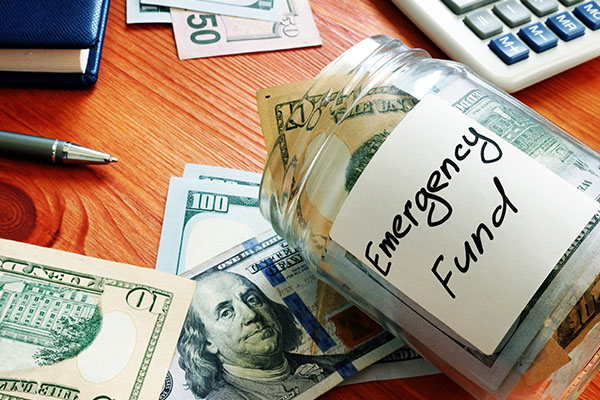
Financial Planning: Setting up an emergency fund and saving money is one of the biggest forms of self-respect. It’s the most loving thing you can do as a woman who statistically lives longer than men.
That is where somebody like you, who is a Certified Financial Planner, can help people figure what they have and what they owe. My plan is either in my Excel spreadsheet that I create, I jot it down on paper or it’s in my head of how I think I’m going to be able to live for the next many years I think I’m going to live. Women in my family live well into their 90s. My mom was joking with me at some point many years ago, “You need to start smoking again and eat a lot more.” Women in our family live forever.
There is great stuff and challenging stuff about that. If we continue to have the thought that we retire in our 60s or maybe in our early 70s and we’re going to live for another 25 years, how are we going to fund that? I don’t remember exactly what the statistic is but a lot of women end up in their elderly years in poverty because they haven’t saved enough money. We think that something magical is going to happen.
We all can become victims at some point or another of magical thinking like it’s all going to work out. Talk about the cost of not paying attention. If we don’t have a plan, we can end up in a bad place. Whether we have $50, $500 or $50,000 that we could be putting aside, I would think that is when a financial planner could help us navigate that whole thing.
Women many times don’t think they have the opportunity, yet they do. I was amazed when people are living paycheck to paycheck and yet they have beautiful nails and clothes. They drive a beautiful car. Most wealthy people don’t spend a lot on expensive cars. Many times they don’t live in an expensive house. They invest more in experiences, education and their community.
There is a lot of pressure certainly with the iPhone and social media that a lot of people are buying things to impress people they don’t even know. If they did know them, they may not even like. One of the sexiest things you could do for yourself is to give yourself peace of mind. If you need to have help later on in life, you can afford to pay someone to come in but it doesn’t happen.
Financial peace of mind is one of the sexiest things you can do for yourself Share on XMedicaid does not provide for that. It’s a pretty bleak existence. Putting aside money, ideally, people will ask me, “How much should I be saving?” I still believe that ideally, in a perfect world, an investor would have a goal of saving 30% of their income. When I suggest that, people are shocked.
Almost every one of them gets to that point where we save them 15% for their long-term goals for retirement and 15% for their shorter-term goals like buying their first home. When they buy a car being in that position, they can buy cash or pay most of it upfront. Plan for those bigger purchases so you’re not in this debt cycle of paying off debt and rolling it over to another piece of debt. Those are the people who have the most options in life. They are the ones who get to choose when and how they retire, where they live, whom they spend time with, how much they spend time with them and where they spend that time.
The average American has more than $10,000 in credit card debt and is not in a position where if they needed to, they could pay that off. What if I’m in a situation where I realize I have $10,000, $20,000, $50,000, or whatever the amount is? I have this debt. There is a difference between debt that is for a business, personal debt and debt that is in your home. Home loan versus car loan debt versus credit card debt, all of these things are different.
If I’m realizing, “If I got real, put on my big girl panties and looked at this, I may be one of those people who are in thousands of dollars of credit card debt.” How can I start making a dent in that? Should I be making a dent in that and saving, trying to do other things and putting money into a 401(k), or should I work on getting out of the debt and working on the other stuff?
It is important to have an emergency fund, even if you’re servicing credit card debt. In the perfect world, we have six months’ worth of living expenses. A lot of people who, if you’re servicing credit card debt, you’re not going to have that luxury. Having a month’s worth of living expenses would be a reasonable emergency fund to have.
It’s important for those people to open up those statements, get real about the debt and look at it. I like taking clients through exercises on what types of purchases they are making. A lot of times, it ends up being impulse purchases. The discretionary purchases are the money that can be harnessed and taken towards paying off the principal debt right off the top.
If you go through that cashflow exercise and there is so much money per month that the person doesn’t have to have or automatically do an automatic payment to pay off that debt and already agree once the debt is paid off that additional cashflow if it’s $500 or $1,000, it can be a lot more than that. There’s a next step of what to do with that money once it’s paid off.
I deal with a lot of newly single women. Many women who go through a divorce go through the most important financial decision of their life when they make a marriage dissolution. They need to get real about where they are spending their money. Many times, it’s for shopping or “retail therapy”, trying to feel good. For them to go through their closet and shop for three things to give away to charity has many times the same level of a serotonin hit that a feel-good shopping outing to buy yet another pair of black boots would give them.
Understand what you have to have and what you want to have. Everyone wants to have mad money and impulse buying. Put a cap on it and set it aside. I have even seen people be successful at going to an envelope system. They will pay themselves so much per month. For those people who have a challenge with a credit card because when you hand over a credit card or you’re doing it off your phone, it’s all digital. You lose the connectedness to the money and how hard you work to earn that money to easily give it away.
It all becomes monopoly money when it’s on our phone, a piece of plastic or we’re not dealing in cash. Can that be a good system to go on a cash basis for a while so that you get back in touch with how much money you’re spending?
There are lots of research studies that show you spend 30% less than if you’re paying cash. It’s also limiting the number of credit cards you have. Make sure you keep separate your business from your personal. Some people co-mingle. It’s harder to manage and it adds to your accounting. Have a game plan before you go shopping, whether it’s at the grocery store going with a list or if you are going to get a new pair of shoes because you need shoes. Stick to your game plan.
Many times, there’s an opportunity. One of the exercises I love and I have seen a lot of success with is posting your goal. If your goal is to pay off your debt, I love the exercise where the clients will make a worksheet of the highest interest step first, listing it out and post it in the bathroom, bedroom, closet or someplace where they are going to see it every day and what their goal is for paying it off.
Systematically as they pay off chunks, have a reward system. Couples do that together. They have date nights to talk about finances, making it part of their communication and a bonding experience. Those are the people who have the most fun with their money and aren’t owned by their money or the ones that can talk about it freely.
The ones who have the most fun with their money are those who can talk about it freely Share on XI have a good friend who is also an entrepreneur and has a business. We had set up systems in the past when one or the other or sometimes both of us had something that we were afraid to look at, afraid to do, a phone call that we didn’t want to make or whatever that thing was that was hanging over us. We would have what we called study hall. We would get together. We used to do it once a month. We have fallen off from it in part because we are both doing better managing our junk so that we’re not getting into that place where it’s like, “I don’t want to deal with that thing, whatever that is.”
At different times, it can be great if you have somebody. It could be a spouse or a partner, a child or a good friend. If what you’re going to look at is your money and your credit card debt, he or she is not going to have a problem about the fact that you have however much credit card debt you have. They are still going to love you. They are not going to shame or blame you for it. It’s going to be safe for you to look at whatever this thing is that you don’t want to look at.
It could be something about your medical history. We all have junk in various domains of our lives. Have you had clients who had success in creating that same buddy system when they going through various parts of getting their financial house in order that could be challenging or confronting?
Having a buddy system that you can revisit is all about taking the shame away and being able to make progress. If that’s a friend, a family member or your partner, it’s also an opportunity for you to able to boast about your progress. That is empowering. I had many women come through our practice. They are out of control with money and not having an idea of where anything is. Suddenly, to have systems and a little bit of organization doesn’t take a lot. They are walking taller and feeling better.
One of the things they love to do is to boast. This is a safe place to do that. We love to celebrate those victories. Pay off those credit cards and all debt. Live debt-free, auto loan, those credit cards and no mortgage. If you add up how much you are spending towards financing that debt, I wonder how many nice things you could do for yourself, your family and your community with those resources. That’s what it’s about. It’s about having your money serve you and not you being a slave to your money.

Financial Planning: Celebrate your financial victories. It’s about having your money serve you and not being a slave to it.
We are starting to creep towards the end of our time together. As we start thinking about wrapping up, is there anything that we haven’t had an opportunity to talk about yet? If you had a loudspeaker and could say something to everyone in the world, what would it be? Where would you like to leave people?
I want people to realize they are worth it. They are worth spending time to prioritize themselves. It’s a magical journey to be able to prioritize yourself and live a free or easier life. That would be what I want to share.
If you hadn’t figured out yet why I love Sarah Carlson, that would be it right there.
If folks would like to receive information on my new book, Facing Financial Fears: 8 Steps to Financial Freedom For Women, they can go to my website FulcrumFinancialGroup.com.
Great! To the readers – if you would like somebody to help you think about how to get started or if you’re further down the road and you would love somebody to help you do a little bit more sophisticated planning, Sarah can do all of that!
Sarah, thank you so much for your life’s work in helping people, especially women get a handle on our money and help us to get rid of the junk that we have about money so we can have power in this important area of life. We appreciate you and all that you’re up to in the world.
Janine, what a pleasure to be here with you. Thank you so much for having me. I’m one of your many fans.
You’re more than welcome. Remember, great leaders, make great teams. Until next time.
Important Links
- Sarah Carlson
- Facing Financial Fears: 8 Steps to Financial Freedom for Women
- FulcrumFinancialGroup.com
- Instagram – @LoveMoneyJournal
About Sarah Carlson
 Love Money Journal is my online community where I empower women to achieve financial well-being. My name is Sarah Carlson, and I’m the Founder & Owner of a successful financial planning and wealth management business. Many of my clients come to me during times of transition such as divorce, widowhood, and retirement, wanting to make the most of their resources. I help them prepare for and weather the storm that life presents, and to work toward their objectives through financial planning.
Love Money Journal is my online community where I empower women to achieve financial well-being. My name is Sarah Carlson, and I’m the Founder & Owner of a successful financial planning and wealth management business. Many of my clients come to me during times of transition such as divorce, widowhood, and retirement, wanting to make the most of their resources. I help them prepare for and weather the storm that life presents, and to work toward their objectives through financial planning.
